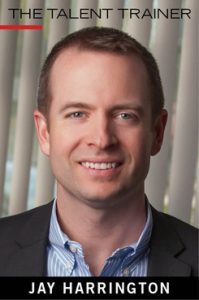Associates, Don't Let Salary Hikes Become Your Faustian Bargain
Make no mistake, young lawyers. These raises are very much part of a calculated plan.
July 05, 2018 at 11:35 AM
7 minute read

In 1978, rock star Alice Cooper appeared in a bizarre episode of “The Muppets” in which he plays the role of agent of the devil. He offers Kermit, Miss Piggy and the other Muppets “fabulous riches and worldwide fame” in exchange for signing a contract relinquishing their souls. (Only Gonzo expresses interest, but he can't find a pen.)
This “deal with the devil” cultural motif is common in books, movies and TV shows in which temptation is dangled before protagonists, and plot lines explore the human capacity to resist the allure of Faustian bargains.
This summer, a blockbuster drama is playing out across websites and around water coolers in the legal industry. Milbank moved first to raise first-year associate salaries. Cravath upped the ante by surpassing Milbank's bump and sweetening the pot with increases for senior associates. Simpson Thacher threw special summer bonuses into the mix. Milbank then matched Cravath's pay scale and announced its own bonuses for associates in good standing.
 One of the most fascinating aspects of this drama is the fact that the raises do not seem to be in response to any obvious, urgent market demand. It's not as if there was some groundswell of insistence among associates that firms ladder up their compensation structures. Rather than being active participants in this bidding war, associates are taking a back seat and watching as firms continue to raise their auction paddles in an effort to one-up each other or at least keep pace. Raises are being foisted (fausted?) upon associates. The biggest uncertainty: When will it end?
One of the most fascinating aspects of this drama is the fact that the raises do not seem to be in response to any obvious, urgent market demand. It's not as if there was some groundswell of insistence among associates that firms ladder up their compensation structures. Rather than being active participants in this bidding war, associates are taking a back seat and watching as firms continue to raise their auction paddles in an effort to one-up each other or at least keep pace. Raises are being foisted (fausted?) upon associates. The biggest uncertainty: When will it end?
One thing we do know for certain is that the incoming class of 2018 lawyers will be stepping into a different environment than they anticipated just a few months ago. In one of his most popular, rebellious anthems, Alice Cooper sings: “School's out for summer.” For soon-to-be first year lawyers across the country, school may be out, but a whole new education in what it means to be a valuable contributor in a high pressure, high stakes profession is about to begin.
With Reward Comes Responsibility
For an associate detachedly observing the salary bidding war, it would be easy to interpret this law firm largesse as a bestowed gift. But make no mistake, these raises are very much part of a negotiated bargain. Associates may not have been asking for more, but firms are most definitely going to be expecting more from them. With reward comes responsibility.
Therefore, as an associate, it's important to understand how your firm perceives the value, or lack thereof, that you contribute to its success, and to a great degree it comes down to dollars and cents. Many factors contribute to an associate's perceived value, but generating a positive return on investment for the firm is high on the list.
At the same time, particularly in today's booming economic environment in which there is an abundance of billable work to perform, generating a positive ROI is table stakes for an associate with ambitious career aspirations. Associates need to make money for the firm, yes, but perhaps more importantly they need to focus on making life easier for those they work for.
Partners and clients are busy. They need the support of good people, either working under them as an associate or for them as outside counsel. Once they find good people, they jealously guard them. Their success depends on it.
Other than quantitative measures such as high billable hours, the principal way that associates can qualitatively demonstrate their value is by taking ownership of all aspects of their work.
The Importance of an Ownership Mindset
Exhibiting an ownership mindset is a great way for associates to demonstrate that they understand and appreciate the significant investment their firm, and by extension their firm's clients, has made in them. Manifesting this mindset takes many forms, but let's start by identifying behaviors that mark the antithesis of ownership. Such behaviors include doing only what is asked, dodging particular assignments or partners, “mailing it in” on work that you deem beneath your capabilities, and not owning up to mistakes and shortcomings.
Acting this way degrades trust. On the other hand, assuming ownership of your work by making and fulfilling commitments with a sense of urgency builds trust and positions you for success and advancement in your firm. Some of the best ways to exhibit a sense of ownership include:
- Seeing the big picture. Don't just complete discrete tasks in a vacuum. Talk to the partner-in-charge and the client to understand the big-picture objectives. For example, if you're asked to research two causes of action for a complaint, have a deep enough understanding of the underlying issues to evaluate a third potential cause of action that no one else considered. This contribution will put you in a position to not only produce excellent work product but also impact the overarching strategy of the matter.
- Owning the facts. If partners or clients have to remind you of the facts, they're going to question why you're staffed on the case and appearing on monthly invoices. Those you work for are dealing with huge volumes of information on a daily basis. By owning the facts, you'll be seen as an indispensable resource. You'll be in the room during strategy discussions and be consulted with on important aspects of the matter. Your superiors will have peace of mind knowing they can let go of the minutiae because you have it covered. They'll sleep better at night for having you on their team—and there are few more valuable benefits you can provide than that.
- Assuming a leadership role. Many associates perceive the early years in their careers as a time to be led, which is a mistake. Partners are looking for leaders, not followers. They know that only a few associates in each class will be asked to join the law firm partnership, and they're looking for leadership abilities from Day One. Leadership starts with taking ownership of your work. As you advance, it means getting more deeply ingrained in your firm by, for example, joining associate committees and volunteering to interview new job candidates. Show some initiative. Be engaged. Invest in the firm's future. Be valuable. By being valuable, you'll prove to those you work with and for that your increased salary is worth the investment.
Much of the discussion surrounding associate raises has centered around the reactions of general counsel. Mark Smolik, general counsel and chief compliance officer at DHL Supply Chain Americas, recently said, “If a law firm feels it necessary to pay first-year attorneys an extraordinary $190,000 to remain competitive, then that is their decision. Just don't ask for me to pay for it.” Law firms are undoubtedly closely monitoring the market's reaction to associate salary raises in order to gauge their next moves. It would benefit associates to do the same, because the ultimate responsibility to prove the wisdom of the raises falls to them; and the most reliable, objective form of proof will come in the form of positive ROI for their firms and clients.
Jay Harrington is an executive coach and trainer for lawyers and law firms. He is the owner of Harrington Communications, and is associated with Simier Partners. Contact him at [email protected].
This content has been archived. It is available through our partners, LexisNexis® and Bloomberg Law.
To view this content, please continue to their sites.
Not a Lexis Subscriber?
Subscribe Now
Not a Bloomberg Law Subscriber?
Subscribe Now
NOT FOR REPRINT
© 2025 ALM Global, LLC, All Rights Reserved. Request academic re-use from www.copyright.com. All other uses, submit a request to [email protected]. For more information visit Asset & Logo Licensing.
You Might Like
View All

Elite Boutiques Competing More With Big Law Bonuses, With Several Going Above Market
9 minute read
Trending Stories
- 1Latham's Lateral Hiring Picks Up Steam, With Firm Adding Simpson Practice Head, Private Equity GC
- 2Legal Restrictions Governing Artificial Intelligence in the Workplace
- 3Failure to Adequately Inform Patients
- 4'FTX' One Year Later: The Impact on Examiner Practice in Bankruptcy Courts
- 5Gen AI Legal Contract Startup Ivo Announces $16 Million Series A Funding Round
Who Got The Work
J. Brugh Lower of Gibbons has entered an appearance for industrial equipment supplier Devco Corporation in a pending trademark infringement lawsuit. The suit, accusing the defendant of selling knock-off Graco products, was filed Dec. 18 in New Jersey District Court by Rivkin Radler on behalf of Graco Inc. and Graco Minnesota. The case, assigned to U.S. District Judge Zahid N. Quraishi, is 3:24-cv-11294, Graco Inc. et al v. Devco Corporation.
Who Got The Work
Rebecca Maller-Stein and Kent A. Yalowitz of Arnold & Porter Kaye Scholer have entered their appearances for Hanaco Venture Capital and its executives, Lior Prosor and David Frankel, in a pending securities lawsuit. The action, filed on Dec. 24 in New York Southern District Court by Zell, Aron & Co. on behalf of Goldeneye Advisors, accuses the defendants of negligently and fraudulently managing the plaintiff's $1 million investment. The case, assigned to U.S. District Judge Vernon S. Broderick, is 1:24-cv-09918, Goldeneye Advisors, LLC v. Hanaco Venture Capital, Ltd. et al.
Who Got The Work
Attorneys from A&O Shearman has stepped in as defense counsel for Toronto-Dominion Bank and other defendants in a pending securities class action. The suit, filed Dec. 11 in New York Southern District Court by Bleichmar Fonti & Auld, accuses the defendants of concealing the bank's 'pervasive' deficiencies in regards to its compliance with the Bank Secrecy Act and the quality of its anti-money laundering controls. The case, assigned to U.S. District Judge Arun Subramanian, is 1:24-cv-09445, Gonzalez v. The Toronto-Dominion Bank et al.
Who Got The Work
Crown Castle International, a Pennsylvania company providing shared communications infrastructure, has turned to Luke D. Wolf of Gordon Rees Scully Mansukhani to fend off a pending breach-of-contract lawsuit. The court action, filed Nov. 25 in Michigan Eastern District Court by Hooper Hathaway PC on behalf of The Town Residences LLC, accuses Crown Castle of failing to transfer approximately $30,000 in utility payments from T-Mobile in breach of a roof-top lease and assignment agreement. The case, assigned to U.S. District Judge Susan K. Declercq, is 2:24-cv-13131, The Town Residences LLC v. T-Mobile US, Inc. et al.
Who Got The Work
Wilfred P. Coronato and Daniel M. Schwartz of McCarter & English have stepped in as defense counsel to Electrolux Home Products Inc. in a pending product liability lawsuit. The court action, filed Nov. 26 in New York Eastern District Court by Poulos Lopiccolo PC and Nagel Rice LLP on behalf of David Stern, alleges that the defendant's refrigerators’ drawers and shelving repeatedly break and fall apart within months after purchase. The case, assigned to U.S. District Judge Joan M. Azrack, is 2:24-cv-08204, Stern v. Electrolux Home Products, Inc.
Featured Firms
Law Offices of Gary Martin Hays & Associates, P.C.
(470) 294-1674
Law Offices of Mark E. Salomone
(857) 444-6468
Smith & Hassler
(713) 739-1250









